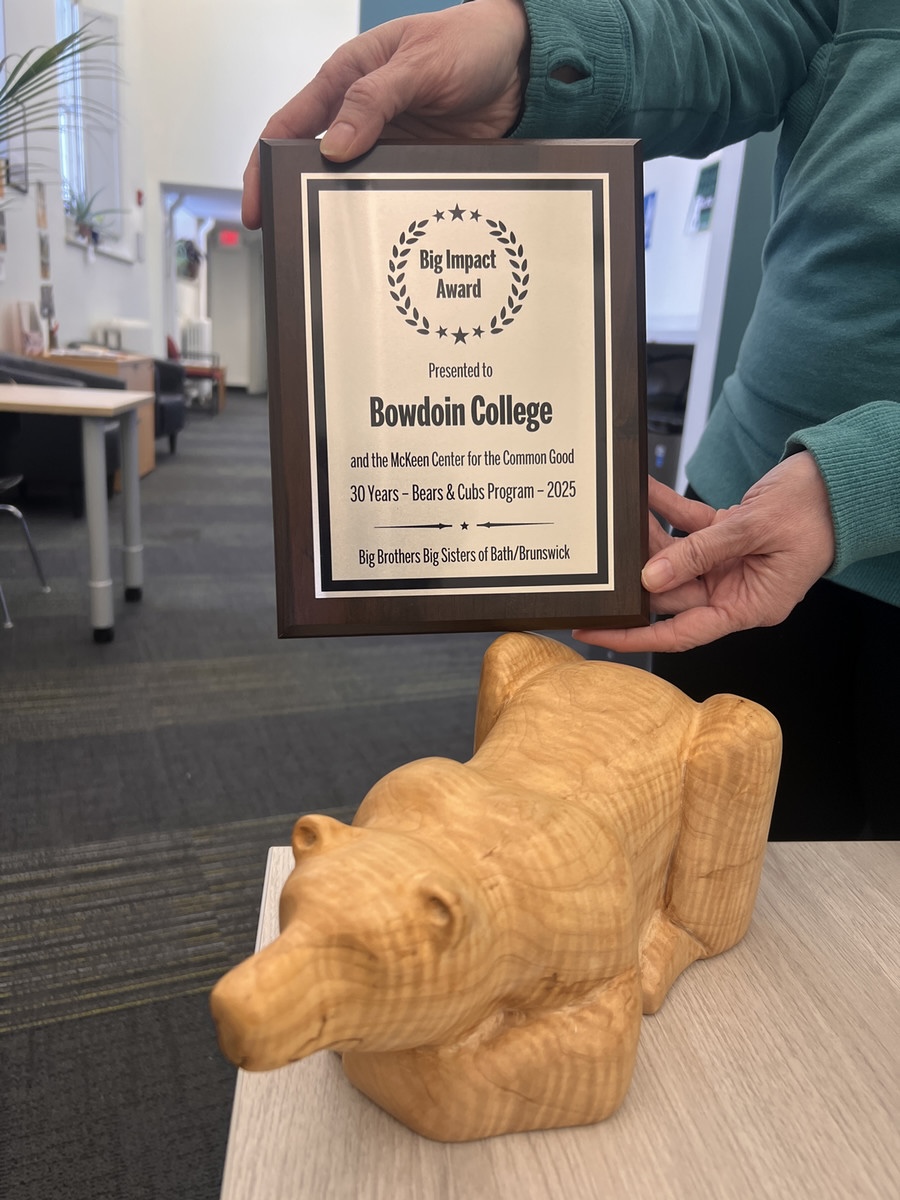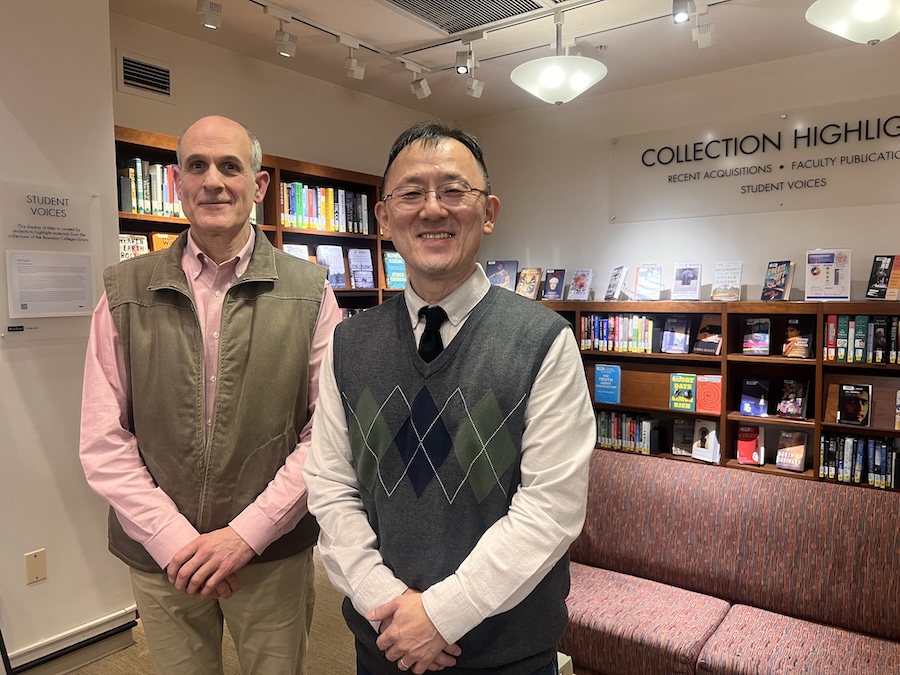Bowdoin Gets Out the Vote Through Big Community Effort
By Rebecca Goldfine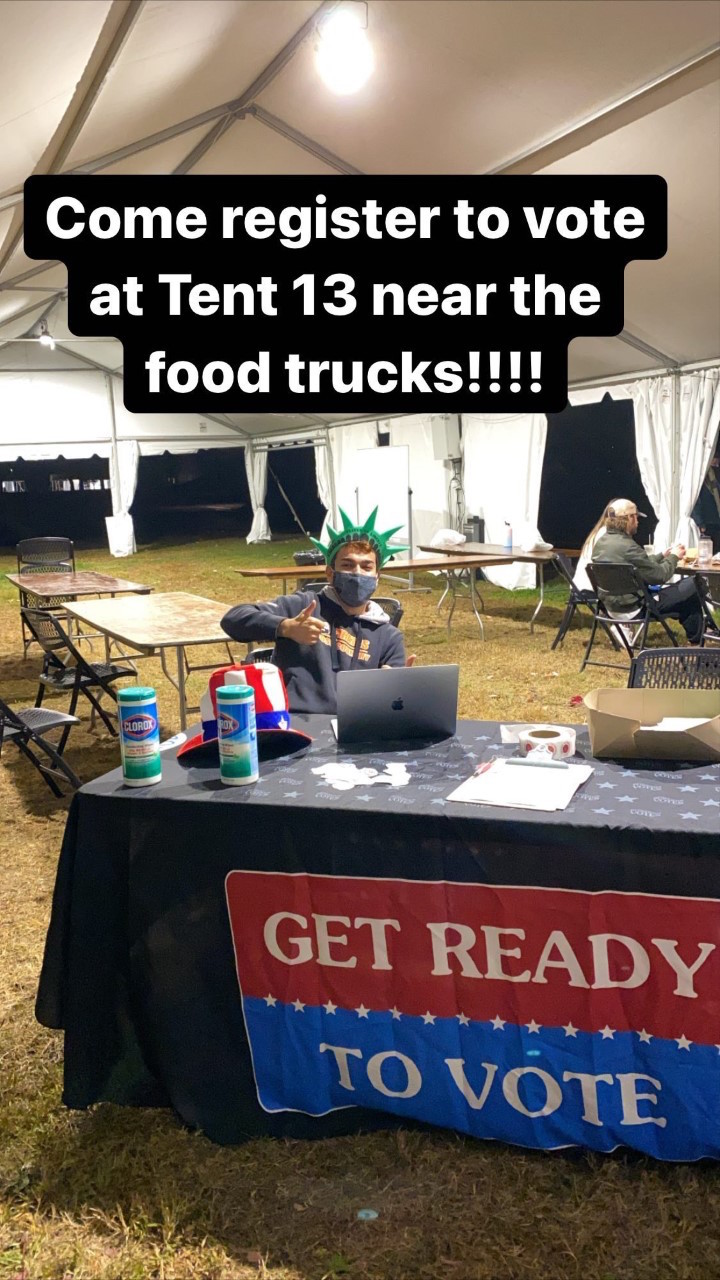
Political scientists say one of the best ways to get people to the polls is to chat with them in person and ask about their plan for voting. Having people articulate when and how they're going to vote seems to offer them extra motivation to actually follow through with the act.
In this spirit, Bowdoin received a $15,000 grant from the organization Ask Every Student to set up a web of students who can keep one another accountable for voting.
The grant is funding two fellows—Marie (Mary) Nzeyimana ’22 and Wilder Short ’22—who manage twenty paid student workers. The job of these voting organizers is to recruit and train volunteer "voting captains." The captains then work with their personal networks—housemates, sports teams, a cappella groups, etc.—to help individuals register and vote.
"We know students get discouraged or distracted, or that different barriers come up, so we want to have that personalized support to help them over the finish line," Andrew Lardie said. He is the McKeen Center's associate director for service and leadership, and each year he runs Bowdoin Votes, the College's nonpartisan get-out-the-vote effort.
So far, the team of voting organizers has recruited about thirty-two voting captains, many of whom are athletes. "The biggest inroads we’ve made are through athletics," Lardie said. "Athletics has made a big departmental effort toward equity and inclusion, and part of that is making sure all their eligible students are able to participate in the election."
The goal for Lardie and his team is to break the campus's already strong voting record. In the 2016 elections, 76.1 percent of eligible Bowdoin students cast a ballot, according to Tufts University's Institute for Democracy and Higher Education, which tracks voting rates at colleges and universities.
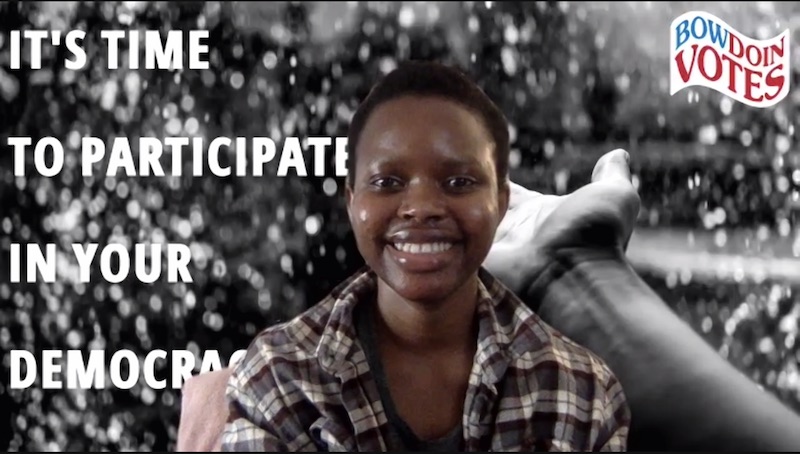
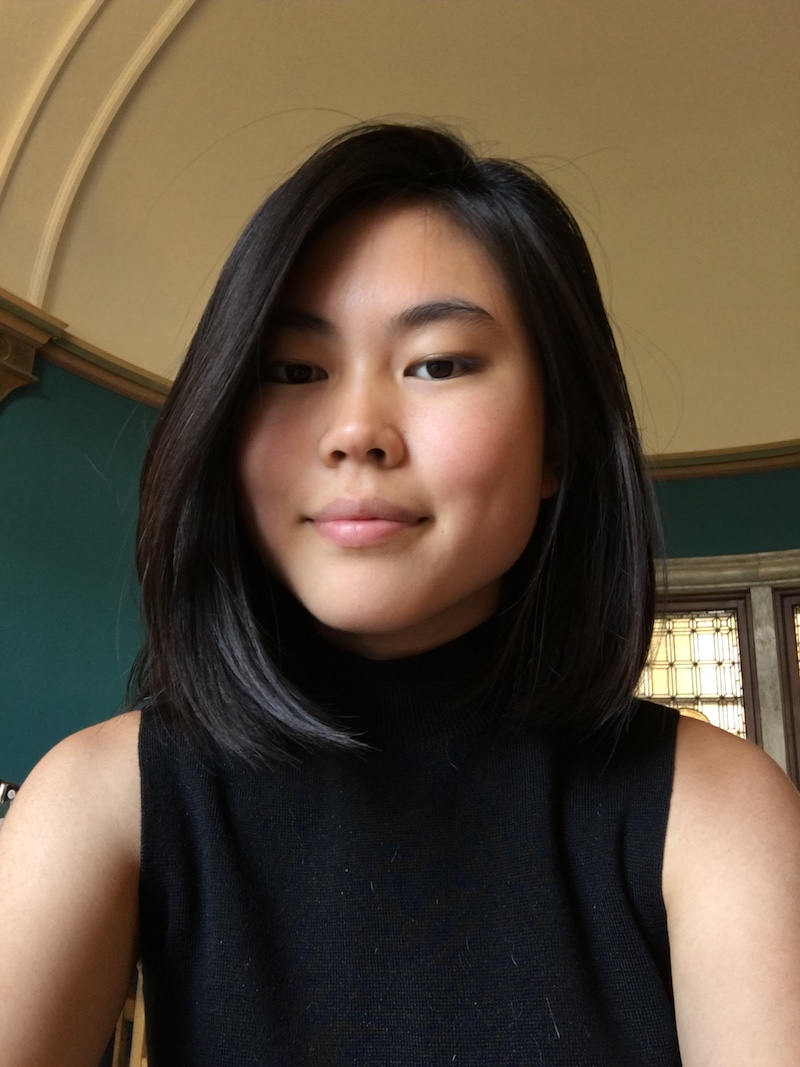
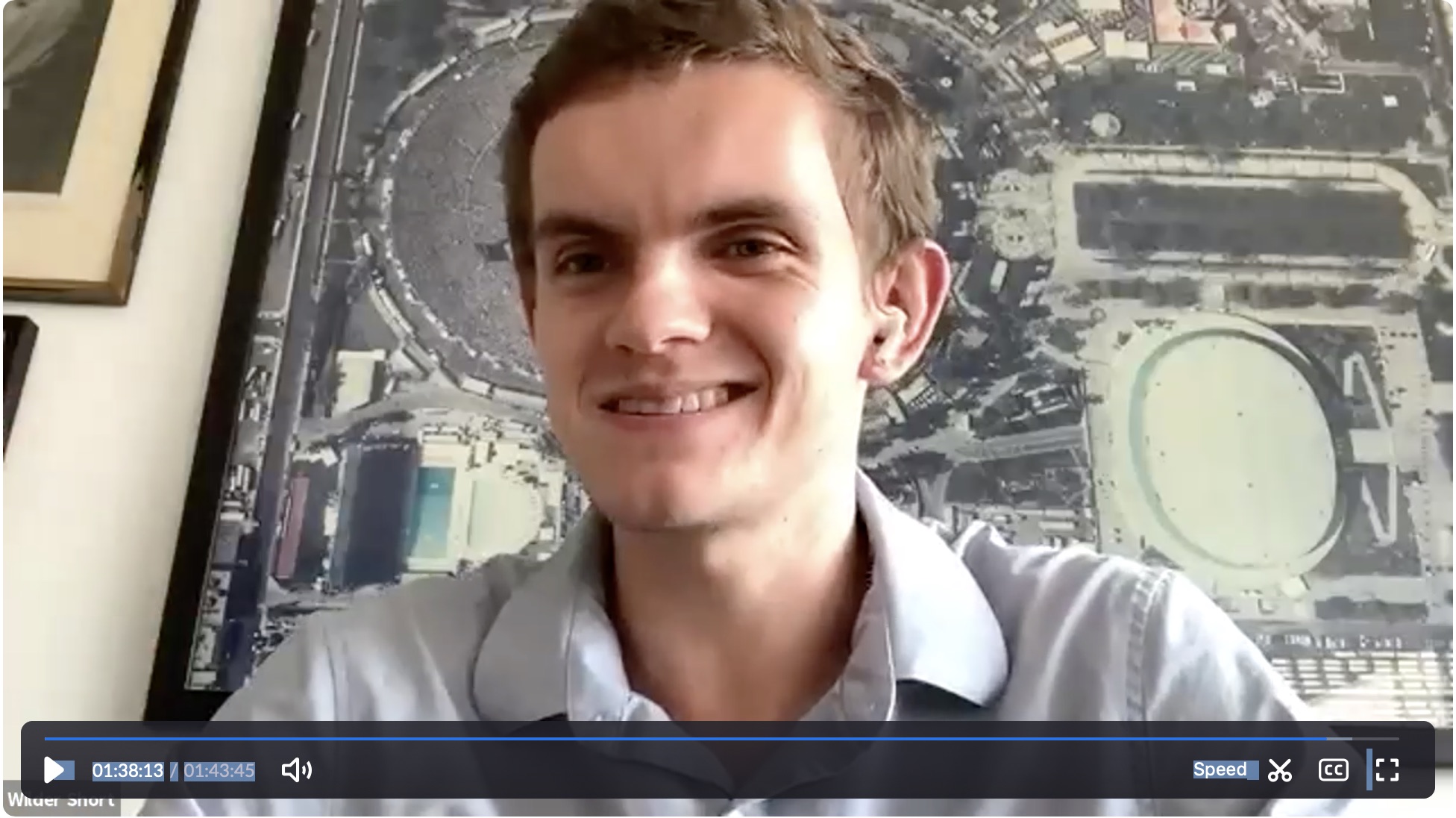
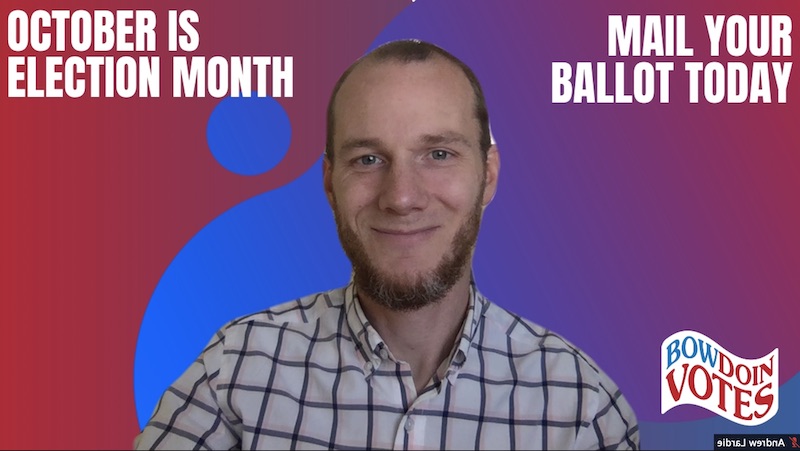
With the majority of students studying remotely this fall, most of the peer-to-peer outreach is being done virtually, through instant messaging and social media. And this is going well, according to voting organizer Nora Sullivan Horner ’24. "The work is well-suited to the digital age," she noted.
Plus, in a time when so many students are living apart, Nzeyimana said urging her peers to vote offers an excuse to reach out. "It is a win-win—you're helping someone exercise their right to vote and participate in democracy, as well as forming new friendships or deepening friendships that already exist. Who doesn’t want that?" she said.
Though she doesn't describe herself as very politically active, Horner said she applied for the position because it drew on her strengths: interpersonal skills and time management. "This work is so important but is approachable for anyone who wants to be involved," she said. "You don’t have to be an expert to pass through the hallowed gates!"
Nzeyimana sought out the job because it's important to her that young people's voices are heard, she said. One point she makes to her friends is that the people they vote into power are the ones who select judges, sheriffs, and other law enforcement officials. "As a Black person, at the end of the day I am trying to make this country a place I feel comfortable living in, and I can only do that by participating in democracy," she said.
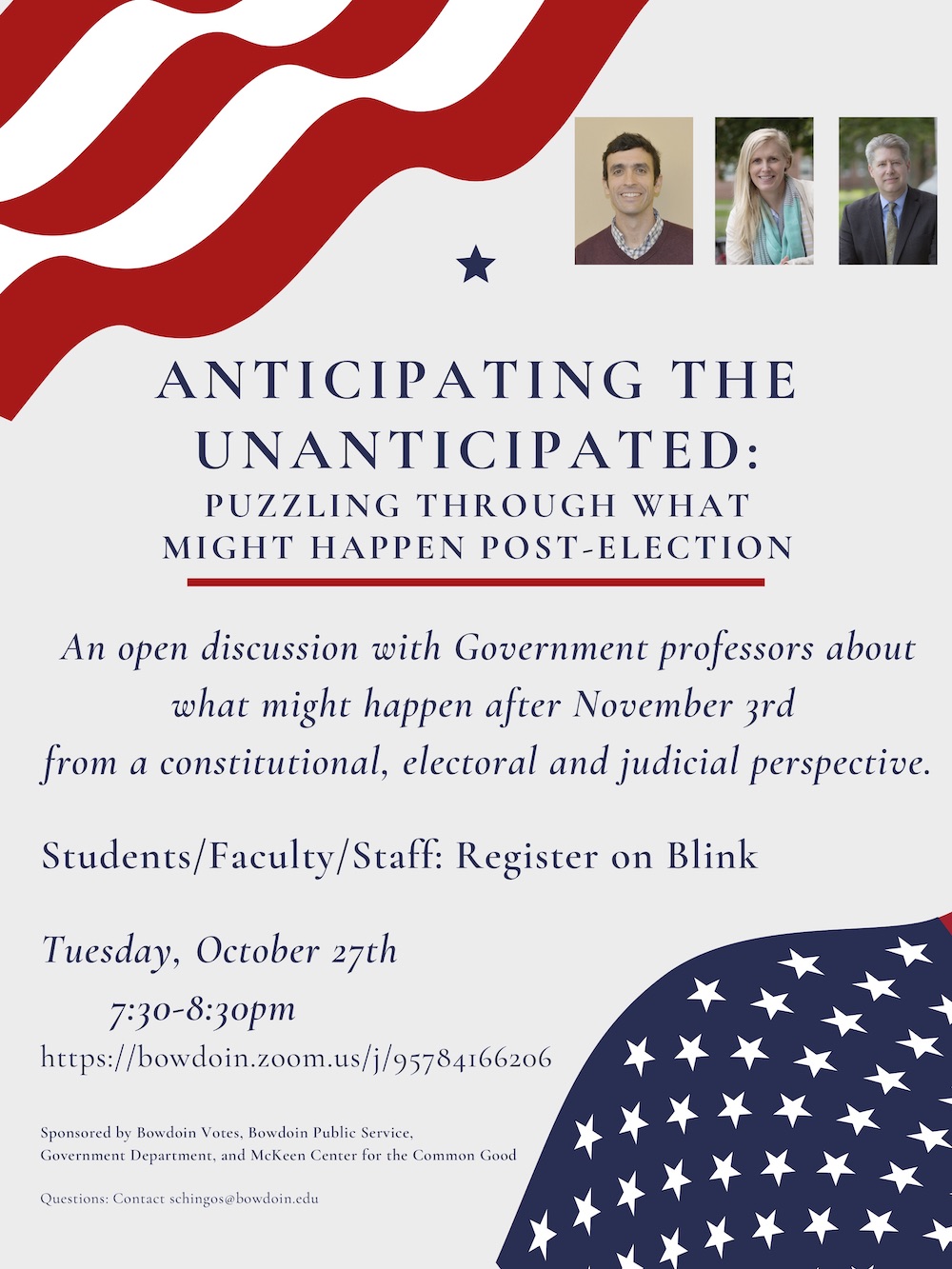
Additionally this fall, the McKeen Center has hired an Election Engagement Fellow, Aoguzi Muhameiti ’23, to oversee get-out-the-vote programming on campus. Not only is he helping students register to vote and vote, he's also organizing events to raise awareness about candidates and issues.
"Civic engagement and government is my passion. Registering people to vote and involving people in that process is my passion," Muhameiti said. "I have been doing this since high school. I think it's important, especially given the times today, for everyone to have a voice in the policies that are made. And the best way to do that is to get them to vote."
Muhameiti has led a few "ballot walks" this fall to kindle student involvement. Students gather at the polar bear statue with their filled-out, sealed ballots, and then traipse down to the town office to stuff them into the outside ballot box.
With the Bowdoin Votes team, Muhameiti has also organized virtual debate-watch parties, held an online forum for local candidates, and managed both virtual and in-person tabling with absentee ballot registration forms and information at the ready. The group also recently put together an online panel with guest speakers on how to maintain a sustainable engagement with politics that is invigorating rather than draining.
Next week, Bowdoin Votes is holding an event with Bowdoin's government faculty aimed at developing informed expectations about election day and its aftermath, according to Lardie.
Muhameiti said students "are 100 percent engaged" in this election. He added: "My deepest hope is that it remains that way for the rest of their lives."


Bowdoin Votes has put together a guide on voting in Maine.

